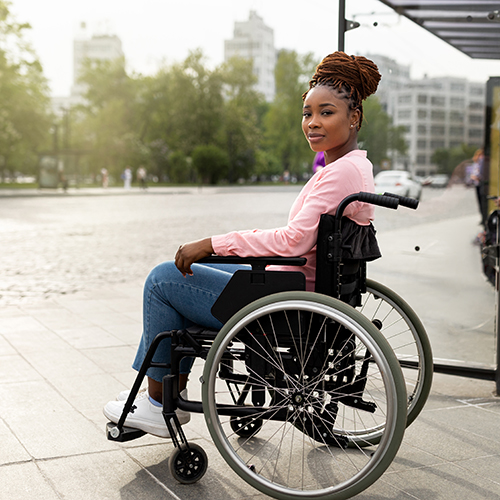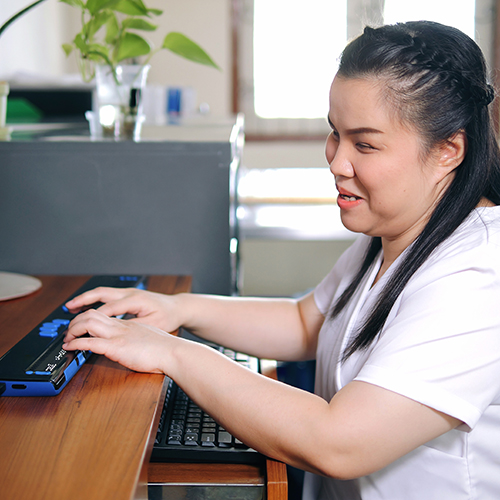The National Partnership for Women & Families is a national nonprofit, nonpartisan organization dedicated to improving the lives of women and families by achieving equality and equity for all women and people of marginalized genders. We recognize that we cannot achieve this equity without focusing on disabled women and families, particularly disabled women of color and multi-marginalized disabled women. In order to plot a more intentional course toward systemic change that achieves the inclusion, access, liberation and economic health and wellbeing of disabled women and families, the National Partnership is introducing systems transformation guides for disability economic justice public policy. Our goal is to shape economic policy decisions and discussions among federal, state, and local legislators; fellow advocates; think tanks; and other partners to ensure the needs of disabled women, particularly disabled women of color, are not only considered but prioritized. We also affirm our commitment to prioritizing and centering disabled women, particularly multi-marginalized disabled women, in our own work.
"Systems Transformation Guide to Disability Economic Justice: Jobs and Employment" is the first in a series and focuses on jobs and employment. It discusses issues related to caregiving, discrimination, public benefits, barriers to competitive integrated employment, labor violations and costs associated with employment for disabled workers. While we recognize that employment is not always possible for disabled people, and one’s value and ability to maintain economic security should not be based on their ability to work, barriers to jobs and employment opportunities for those who can and want to work have broad economic consequences for disabled people.
The second in the series of systems transformation guides focuses on food insecurity, housing and transportation. It discusses barriers to obtaining accessible and affordable housing; accessing benefits programs such as Supplemental Nutrition Assistance Program (SNAP) and Special Supplemental Nutrition Program for Women, Infants, and Children (WIC); and the ways that a lack of accessible, affordable and safe transportation impacts disabled women. Barriers to economic security for disabled women, particularly disabled women of color, exacerbate and create issues related to housing and food insecurity. These concerns, however, can have further economic consequences on disabled women, impacting job retention and medical costs, among other concerns.
The third installment focuses on how draconian and outdated public benefits laws impact the economic health of disabled women, as well as the ways public benefit programs can greatly improve disabled women’s lives. This piece discusses Social Security benefits, Temporary Assistance for Needy Families (TANF), Low Income Home Energy Assistance Program (LIHEAP) and the currently unwinding Affordable Connectivity Program (ACP); how these programs support disabled women, particularly disabled women of color; and how we must improve these programs to break the cycle of poverty for disabled people.
The fourth installment focuses on debt and barriers to wealth building that disproportionately affect disabled women. Poverty is both a cause and consequence of disability. This installment shines a light on how disabled women are trapped into poverty and unable to build wealth due to strict public benefit rules (including asset and income limits), additional expenses associated with being disabled (known as the “crip tax”), a lack of access to quality credit and banking options, financial abuse and exploitation, and the exorbitant debt that accumulates as a result.
This series will shine a light not only on the specific issues that disabled women and multi-marginalized disabled women face but also on the need to:
- Center the perspectives of disabled women and multi-marginalized disabled women in policy discussions; and
- Ensure that we are prioritizing intersectionality in our work.
The unique concerns that disabled women experience are often overlooked. However, we hope that this series provides some helpful action items and initiates important and necessary conversations to ensure this work continues.
Webinar Series
The National Partnership for Women & Families is hosting a webinar series based on the Systems Transformation Guide to Disability Economic Justice. You can watch them here:





